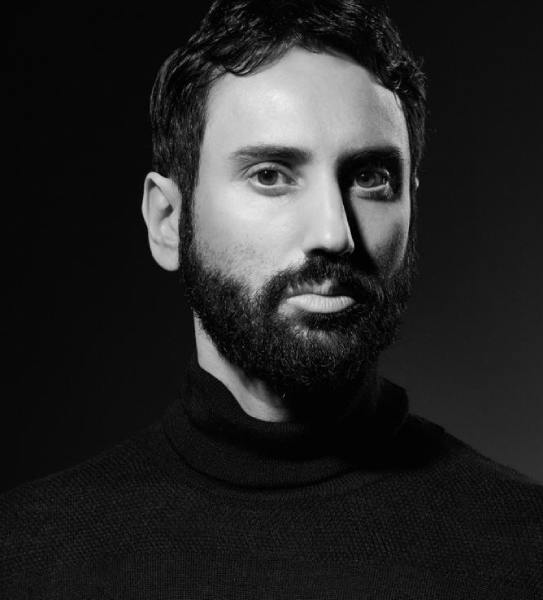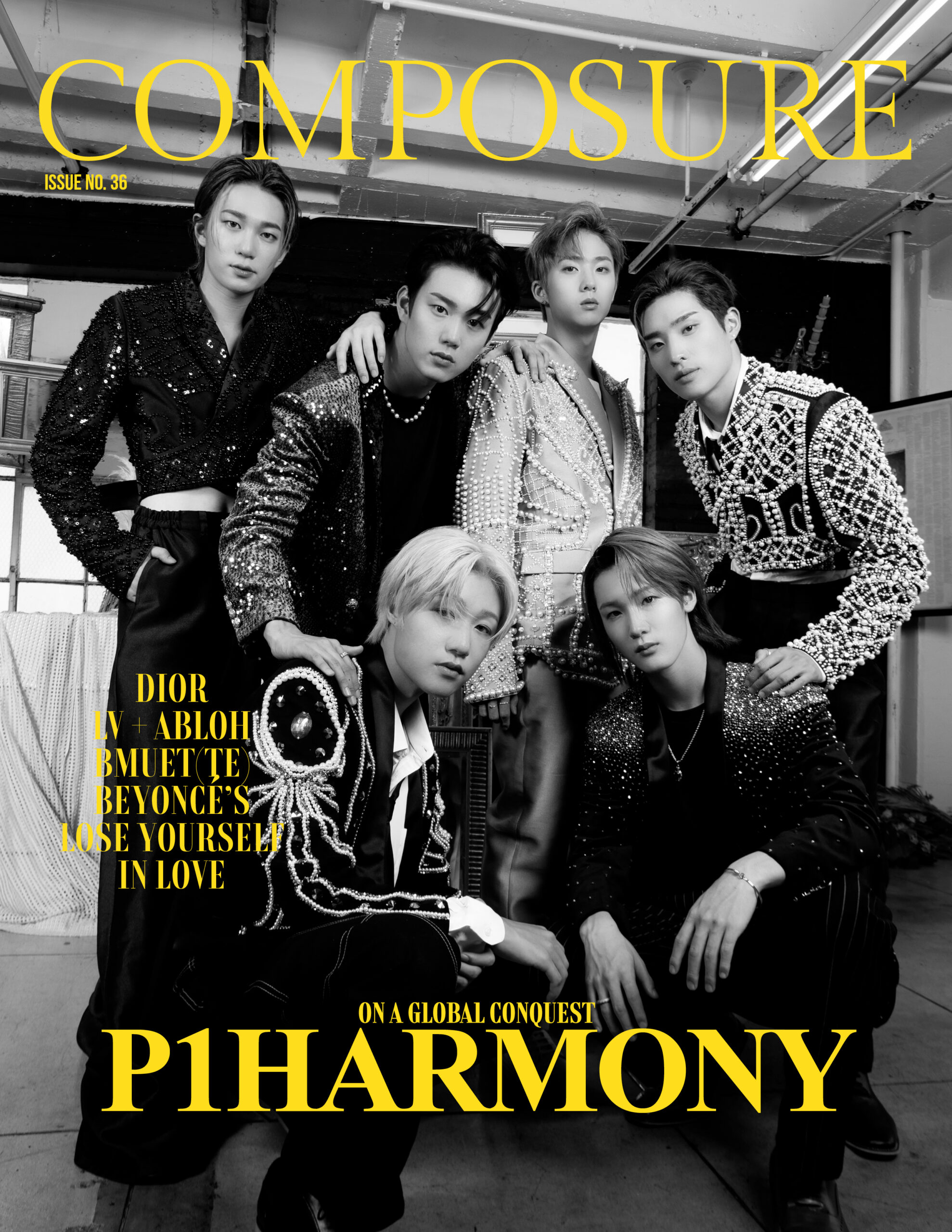
Story by Editor-at-Large Europe Carolina Ogliaro
“Unlocking the Truth Behind Aesthetic Medicine: Dr. Marco Iera Reveals the Secrets to Natural Beauty and True Self-Confidence”
In an era where self-expression and personal confidence are more valued than ever, plastic surgery and aesthetic medicine have emerged as powerful tools for both enhancing natural beauty and fostering well-being. These fields are no longer solely about aesthetics; they play a vital role in helping individuals feel more aligned with their personal identities and comfortable in their own skin. Today’s advancements in medical aesthetics offer safe, effective treatments that range from subtle refinements to transformative procedures, allowing people to embrace their desired look while boosting self-esteem. This shift is not merely a trend; it reflects a growing societal embrace of self-care and body positivity. As people increasingly seek out expert guidance to achieve harmonious, natural results, the fields of plastic surgery and aesthetic medicine are witnessing unprecedented growth and innovation, reshaping lives one treatment at a time.
But the pursuit of perfection has fueled an alarming rise in the misuse of plastic surgery and aesthetic medicine, often exacerbated by the influence of unqualified or non-certified practitioners. This trend is frequently driven by distorted expectations shaped by filters, photo editing and celebrities or social media personalities presenting idealized and unrealistic standards. Many individuals, enticed by the allure of these altered images, seek treatments that may not be in their best interest, sometimes placing themselves in the hands of untrained providers who lack the necessary expertise to ensure safe and effective results. This situation not only compromises physical well-being but also fosters mental health challenges, as the gap between real self-image and artificial ideals widens. It’s crucial for individuals to seek trustworthy, certified professionals and to recognize the risks of pursuing these illusions of perfection over personal wellness and authentic self-acceptance.
In today’s world, where self-care and self-acceptance are becoming increasingly valued, the field of aesthetic medicine stands at a unique crossroads between physical transformation and mental well-being. Few understand this balance better than Dr. Marco Iera, Specialist in Plastic, Reconstructive and Aesthetic Surgery and Aesthetic Medicine, at the Istituto Clinico Brera of Milano.
Doctor Marco Iera is a name that represents excellence in plastic surgery and aesthetic medicine, a professional guided by a deep and authentic vision of well-being and self-esteem. In his career, he has been able to combine incredible technical expertise with a strong ethical commitment, building relationships of trust with his patients and accompanying them on a journey of natural enhancement of their beauty. In this interview, Doctor Iera will share his professional philosophy, addressing fundamental issues such as the relationship between aesthetics and mental well-being, the impact of contemporary beauty standards and the importance of an ethical approach in the sector. Let’s get ready to discover the heart of a profession that does not limit itself to transforming the external appearance, but aims to promote internal harmony and love for one’s uniqueness.

Dr. Iera, what motivated you to pursue a career in plastic surgery and aesthetic medicine?
The underlying reason that led me to choose this path was my deep desire to help others. This profession allows me to improve patients’ appearance, often providing definitive solutions to complex discomforts, knowing the significant impact it can have on their quality of life.
Today, aesthetic medicine plays an increasingly central role for many people in enhancing their appearance. However, this field is closely tied to profound topics such as self-esteem and self-acceptance. How do you believe aesthetic medicine can help people feel better about themselves without losing sight of the importance of loving their uniqueness?
I believe this is a fundamentally important topic when discussing our profession. It is essential to recognize the divide between self-improvement and merely achieving socially imposed beauty standards. I believe that, in this respect, my colleagues and I are called upon to act ethically, with an approach that considers the patient’s desires and emotional state while guiding them on a path that preserves their harmony and uniqueness.
In your experience, what are the main reasons people turn to aesthetic medicine?
From my perspective, the primary motivation is the desire for self-improvement, which, linking back to the previous question, often conceals a deeper desire for self-love. Some situations make it challenging to accept an aesthetic flaw, which can affect self-esteem, social skills, and confidence. The possibility to intervene and improve, to rediscover oneself in a new vision, is the main driving force that brings patients to us.
Plastic surgery is sometimes viewed with skepticism. What would you say to those who criticize these procedures as “superficial” or “unnecessary”?
I believe it’s never appropriate to label procedures as “right or wrong” in advance. It’s important to remember that behind every intervention, there are people with their own experiences, emotions, and desires, which deserve care and attention, not judgment. Today, the approach to health has changed, and the World Health Organization itself defines health as “a state of complete physical, social, and mental well-being,” giving aesthetic improvement a new dignity as a means to enhance one’s quality of life.
How can an aesthetic medicine professional support patients in making informed and conscious choices about their bodies?
Through information: it is a fundamental tool to enable patients to make a conscientious choice, aligned with their expectations but also rational, with a forward-looking perspective. As a physician, I always strive to offer patients a broad, clear view of the treatment or procedure I will perform, strengthening their decision-making power and allowing them to be the protagonist of their transformation with full awareness of everything it entails.
With the widespread use of Photoshop and filters on social media, many people may be influenced by unreachable and unrealistic aesthetic standards. How do you think this affects people’s perception of their bodies, and how can aesthetic medicine help find a balance between the desire for improvement and acceptance? How do you address these requests?
My colleagues and I are called upon to practice our profession with the utmost honesty, especially in a social context where self-improvement stimuli are so pressing that they often lead to a need to conform to imposed standards. Acting ethically means informing, offering one’s perspective while respecting that of the patient, but also knowing when to say “no” when the patient’s requests go beyond the real purpose of our work.
How do you see the evolution of aesthetic medicine in recent years, and in what direction is the field heading?
The trend is increasingly moving toward preventive aesthetic medicine, focusing on maintenance rather than volume alteration.
Are there treatments that are currently more popular? Which ones are most requested by your patients, and why?
Currently, one of the most requested treatments is profile harmonization, especially for the nose and jawline. With the increase in remote work, people tend to see themselves in profile on video more often, creating a desire to improve this aspect.
Can you talk about the common expectations patients have regarding the results of aesthetic treatments and how you manage these expectations? Are there frequent questions patients ask before a procedure, and how do you address them?
Expectations usually revolve around the outcome the patient wants to achieve after treatment: it’s essential to allow space for these to be expressed. At the same time, it’s crucial to manage them realistically by thoroughly informing the patient. The most common questions are about postoperative behavior, which naturally need to be addressed and clarified so that the patient can face the procedure with peace of mind.
Are there common myths about plastic surgery and aesthetic medicine that you would like to debunk?
The primary myth I’d like to dispel is the belief that these treatments must represent a radical change to a patient’s unique characteristics, which, on the contrary, should always be preserved and enhanced.
What criteria should someone consider before turning to an aesthetic or plastic surgeon? In a field like surgery and aesthetic medicine, where unfortunately some professionals are willing to perform any procedure for financial gain, what is your ethical approach to guiding patients toward choices that respect the natural harmony of their body and face? How do you advise identifying a doctor who acts with integrity and professionalism?
A doctor who acts with integrity is one who centers their work on the physical and psychological well-being of the patient, prioritizing it over personal interests. This results in “patient-centered” communication aimed at listening and providing the clearest and most comprehensive information possible. Communication must also be consistent with practice.
What are the risks associated with aesthetic procedures performed by unqualified professionals, and how can one avoid falling into these traps?
Unfortunately, even in aesthetic medicine, the risks are numerous, and it’s dangerous to underestimate them for one’s health. For example, consider “simple” hyaluronic acid injections that, if not performed correctly, can irreversibly alter facial harmony and create actual lesions such as granulomas. My advice is always to be careful and avoid making superficial decisions, seeking out competent professionals.
Have you ever had patients who, after a procedure, found renewed self-confidence in themselves and their appearance? Can you share an experience?
I believe that my patients’ joy is the greatest satisfaction in my work: every day, I witness stories of aesthetic changes and transformations that are always just the tip of the iceberg in a broader metamorphosis of the individual as a whole. In this sense, the theme of “self-confidence” becomes vibrant because it’s through embracing this new vision of oneself—more aligned with personal taste and feeling—that it becomes natural to accept oneself, feel at ease, and thus strengthen self-esteem.
How do you balance the desire for aesthetic enhancement with the importance of maintaining a natural appearance?
By choosing treatments aimed at preserving or restoring the beauty of the skin and tissues, harmonizing the face without drastically changing it, and proceeding in a gradual and, as much as possible, conservative manner.
The idea that aesthetic medicine is a way to “hide age” is still unfortunately prevalent. Do you think the perception of aging is changing?
Certainly, the way the passing of years is experienced is changing. I believe that aesthetic medicine is nothing more than a mirror of “curative” medicine: the latter has enabled us to treat an increasingly wide range of conditions over the years, extending life expectancy. For this reason, the concept of “well-being,” applied to a certain age, is no longer an ambitious goal but the purpose our society strives for. Aesthetic medicine embraces this condition with the aim not of hiding the passage of time but of crowning the victories that scientific advances have allowed us to achieve.
Recently, we have seen a shift from the so-called pillow face, characterized by overly volumized faces, to a more natural and harmonious aesthetic. What do you think has driven this change, and how do you advise approaching treatments to achieve balanced and realistic results?
Recently, the trend has moved toward a more natural aesthetic that respects the patient’s lines. I believe that the boom in treatments and aesthetic surgery has inevitably led to some excess in the past, but, in this case, “evolution,” if we view it with a Darwinian perspective, has then oriented trends toward more conscious and measured choices by both doctors and patients.
The average age for beginning aesthetic medicine has significantly lowered. How do you approach potential underage clients who are accompanied by their parents?
As a doctor, I believe that underage patients deserve particular attention: it’s about understanding the real reasons behind their request, whether it’s appropriate to intervene, how to do so in the best way, but especially with a forward-looking approach. A young patient is one who is still “forming,” both aesthetically, as facial and body proportions are still evolving, and emotionally, as tastes and choices may change as they mature. Being aware of these dynamics allows us to act conscientiously in the patient’s best interest and for their health.
Today, much emphasis is placed on the importance of mental well-being and how aesthetic medicine can influence it. In your opinion, how are aesthetic treatments and psychological well-being connected? And most importantly, how can we help patients avoid the illusion that aesthetic medicine alone can resolve insecurities or self-esteem issues?
In my opinion, it’s important to keep in mind that, as individuals, we are a Unicum: a system of body, mind, and soul working in synergy. Therefore, it doesn’t make sense to compartmentalize, exalting aesthetic treatments as a cure-all but not condemning them either: they represent one of the factors that can contribute to the improvement of the patient as a whole.
Have you ever refused to perform a treatment on a patient because you deemed it inappropriate or risky?
Yes, I have. I believe it is essential never to go beyond the therapeutic window where it is possible to work in complete safety. In this regard, I feel I can speak on behalf of many other colleagues who, like me, uphold the principles of the professional code of ethics, protecting the patient at the expense of any personal convenience.
What advice would you give to someone considering an aesthetic treatment but still hesitant?
The best advice I can give is to find a professional who inspires trust and clearly understands and shares your motivations, and with whom you feel comfortable expressing any uncertainties and fears.
Dr. Marco Iera’s approach to aesthetic medicine goes beyond the superficial, it is a manifesto of the power of enhancing self-esteem and restoring harmony with one’s true self. With a focus on informed, ethical, and personalized care, he underscores the profound connection between physical appearance and mental well-being, reminding us that aesthetic treatments should empower, not conform. By advocating for a balance between natural beauty and the desire for self-improvement, Dr. Iera exemplifies the artistry and responsibility that lie at the heart of this transformative field. His unwavering commitment to preserving the uniqueness of every individual is a powerful reminder that, in aesthetic medicine, true success is measured not by conformity, but by the ability to restore confidence and self-love.






